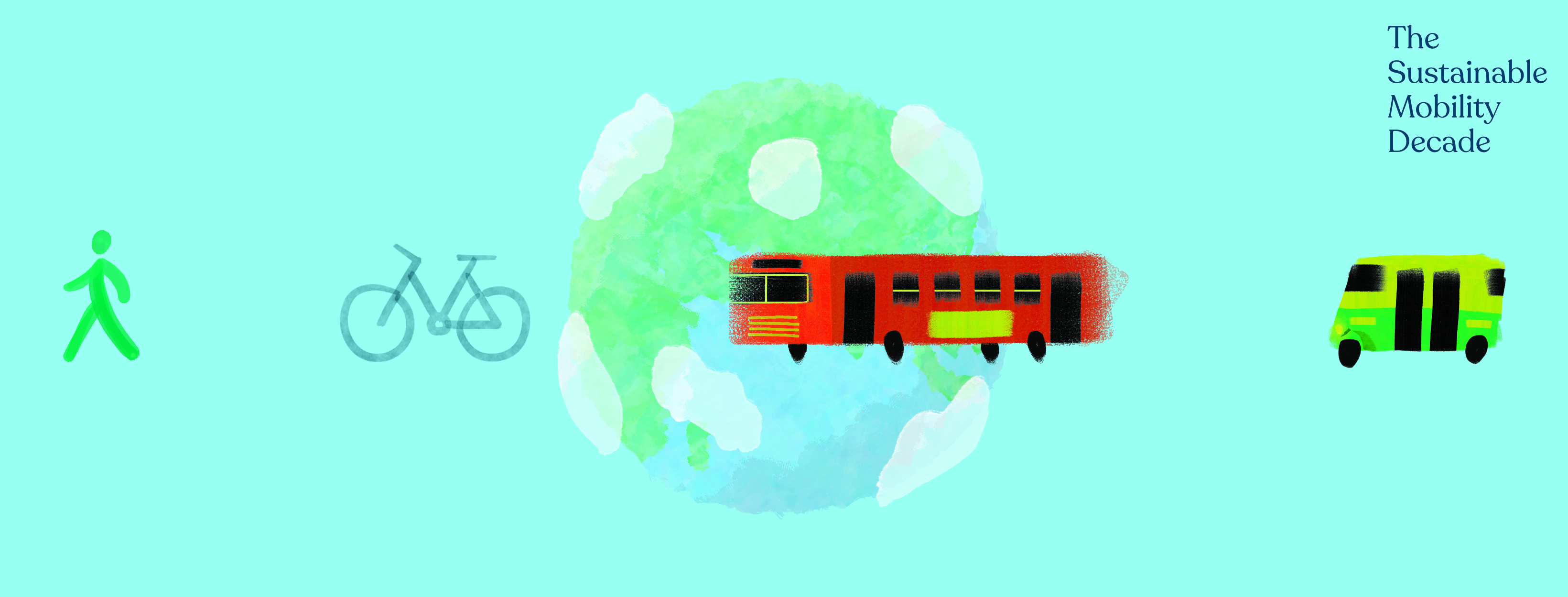PUBLIC STATEMENT : The Environment and Climate Change Department of the Gov’t of Maharashtra must play a key role in ensuring that all cities in Maharashtra have an efficient bus-based public transport system for protecting and enhancing the urban environment

WE, THE UNDERSIGNED, URGE THE HON’BLE ENVIRONMENT AND CLIMATE CHANGE MINISTER, GOVERNMENT OF MAHARASHTRA, to:
1. Recognize the importance of an efficient bus-based public transport (BBPT) system for healthy ecosystems and raise awareness about the same—with a focus on the environmental impacts of different transport modes and the infrastructure required for them—for the general public and decision-makers.
2. Include the goal of a reliable, accessible and environmentally-friendly urban transport system within the agenda of the Environment and Climate Change (ECC) department. In accordance with this agenda, include studies, data and research on the issue of public transport in the department’s public data bank.
3. Provide a set of environmental and ecological recommendations for transport projects in the cities and ensure that full life cycle energy and CO2 impacts are considered before a project gets approval. Subsequently, ensure that alternatives analysis and Traffic Impact Assessments are part of the Environmental Impact Assessment of urban transport projects.
4. Allocate resources from the department for provision of quality-level environmentally-friendly bus services, especially in Tier-II and Tier-III cities of Maharashtra.
5. Ensure that under the current DPSIR (drivers, pressures, state, impact and response model of intervention) model, the annual Environment Status Reports (ESR) by Municipal Corporations include a framework for assessing the impact of transportation.
6. Engage and work in consultation with environmentalists and public transport experts in the different cities of the state to understand the city-specific urban transport related environmental concerns.
7. Recognise urban transport as a multi-sectoral issue and work in coordination with allied departments (transport, urban development, finance) to improve bus-based public transport services and champion a state urban bus-based public transport policy that is inclusive of the aforementioned recommendations.
BACKGROUND
Maharashtra is one of the most industrialised, urbanised and populated states in India. It also has a rich network of wetlands, ghats and forests which collectively make concerns for environmental degradation more serious than other states. Maharashtra tops the list of non-attainment cities, at 17, where pollution levels are not meeting the set standards. The problem of water resources in the cities is related to both depletion and pollution and noise level is at an alarming stage. All of this impacts the health and well-being of the people.
Despite the well-established role of public transport – especially city buses – in cutting air pollution, bringing down carbon emissions, and multiple other ecological benefits, it remains understated in environmental policies, programs and campaigns. Focusing on the urban bus system is an essential overhaul long due in imagining and designing interventions to address ecological issues in urban Maharashtra.
With 50 percent of Maharashtra’s population living in cities, it has only 11 buses per lakh urban population. Many Municipal Corporations do not have a city bus service at all. Excluding Mumbai and Pune, the number of buses per lakh people in cities is less than 5! When the basic infrastructure and services are so stressed, how do we expect to leverage the ecological benefits of the services?
The Environment and Climate Change Department, Government of Maharashtra (GoM), Maharashtra Pollution Control Board (MPCB) and various Municipal Corporations have taken different steps towards environmental protection, regulation and administration. These steps have been in the form of legal reforms, like following the rules and regulations prescribed under the various acts of MoEF, environment programs like Majhi Vasundhara, and awareness campaigns.
However, the solutions and reforms focus solely on cutting the tailpipe emissions. In the absence of a full life cycle approach, the infrastructural impacts of different transport projects are not taken into account. The impact of the infrastructure for public and private transport on the different components of the environment like air, water, land, biodiversity and trees also remain under-studied and underrepresented.
ENDORSEMENT
We, therefore, are issuing this joint statement to ensure that against the stated background, our recommendations are acknowledged and accepted for healthy ecosystems and better environment.
With hope and regards,
Conservation Action Trust, Mumbai
Citizens of Sustainable Pune
Samuchit Enviro Tech, Pune
Vasundhara Swacchata Abhiyan
Urban Research Foundation, Aurangabad
Save Ajni Vann, Nagpur
Eco Nature Club, Solapur
Yugandhar Foundation, Solapur
Nature Conservation Circle
Nisarg Majha Sakha
and many more…